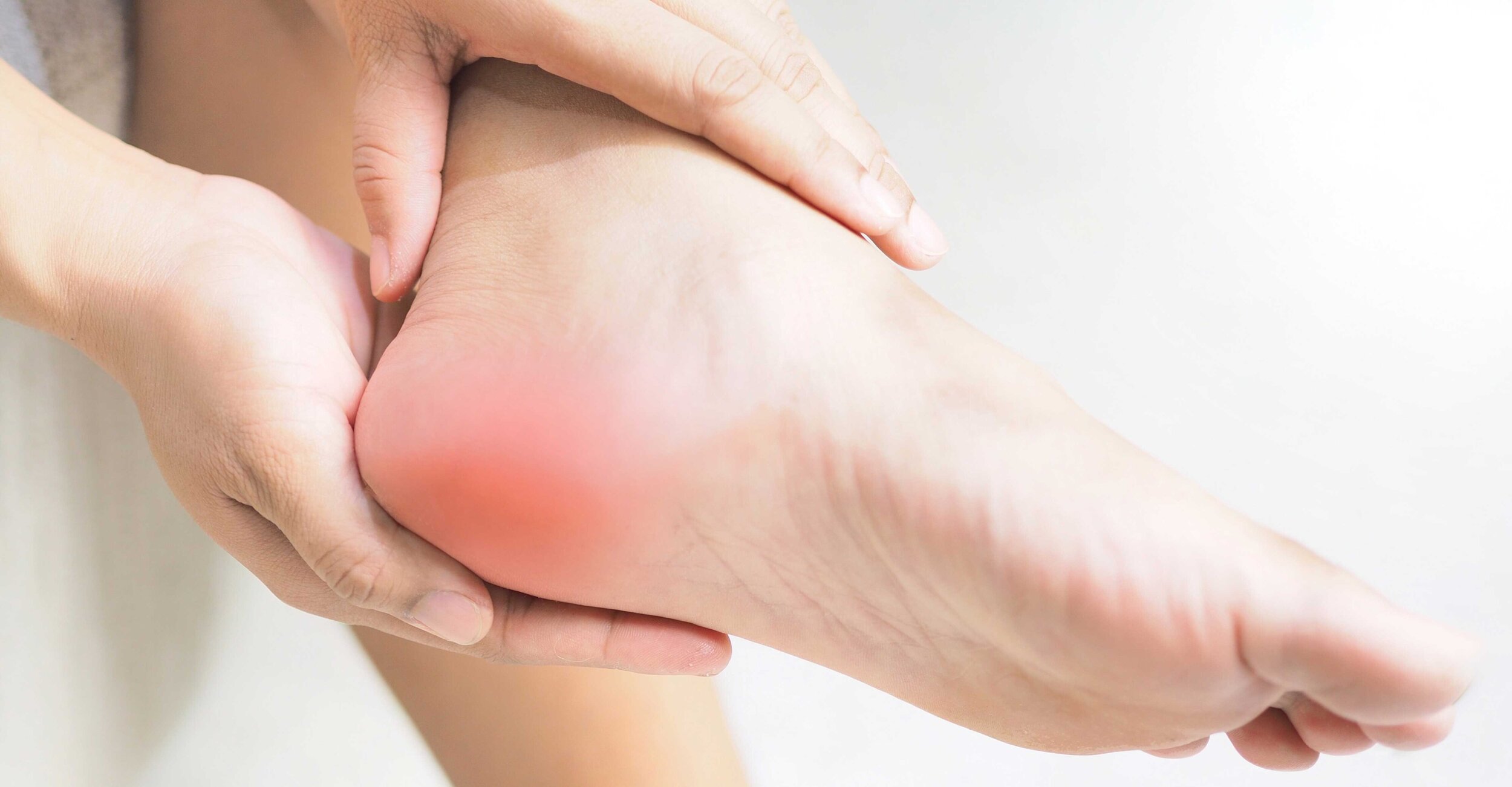
Heel Pain
“Plantar Fasciitis”
Plantar fasciitis is an inflammation of the plantar fascia, the bands of tissue that connect your heels to your toes. These ligaments act as shock absorbers and support the arches of your feet when you run and perform other weight-bearing activity. However, when you put too much stress on your feet, your plantar fascia can develop small tears, leading to inflammation.
Plantar fasciitis commonly affects distance runners. You’re more likely to get the condition if you don’t vary your exercise routine to relieve the stress on your heels.
The condition can affect you regardless of your level of activity. You’re at risk of developing plantar fasciitis if you’re overweight or obese, have to stand for hours on end at your job, or your shoes don’t provide adequate support.
Signs and Symptoms
Pain on the bottom of the heel
Arch pain
Pain worse in the morning or when resuming activity after rest
Pain that increases over a period of months
Pain may improve after moving around
Management
Icing the area several times a day
Physical therapy, including stretches, to stabilize your plantar fascia
Wearing a splint at night to stabilize your foot and ankle
Over-the-counter pain relievers and injections of steroid medication as needed
Diagnosis and Treatment
Dr. Hanawalt helps you manage the pain of plantar fasciitis through simple, conservative treatment. With this approach, the condition goes away within a few months, and you experience relief from your pain much sooner.
If you’re a distance runner, you may need to take a break from running as you heal. That doesn’t mean you have to stop exercising, but Dr. Hanawalt may recommend activities like swimming and cycling that don’t put stress on your feet. Varying your physical activity is important for preventing future overuse injuries as well.
To treat plantar fasciitis and prevent its recurrence, you need proper footwear. Dr. Hanawalt can recommend supportive shoes designed for running and everyday activity. She can also recommend orthotics, or customized shoe inserts, to provide extra support.